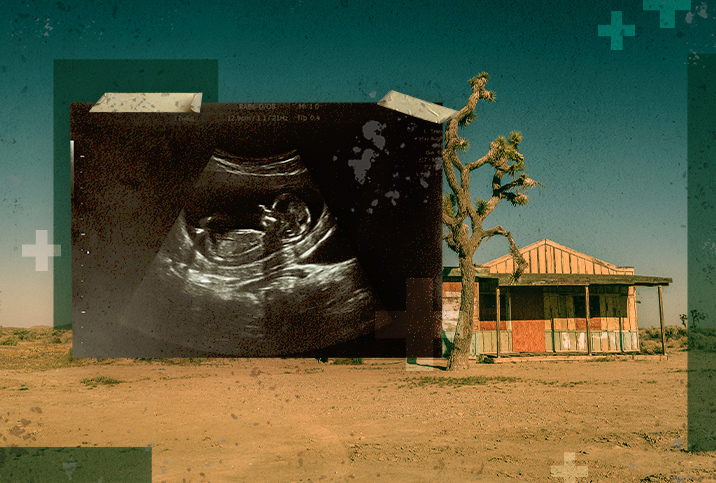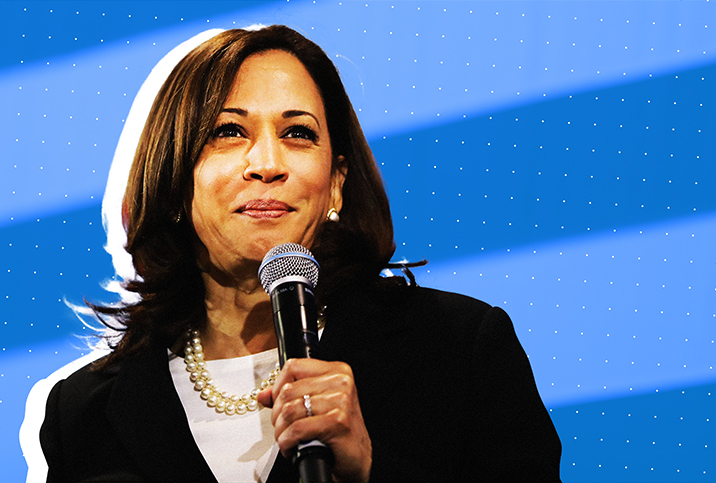CMS Proposes Policies to Improve Maternal Outcomes and Health Equity

In mid-April 2022, the Centers for Medicare & Medicaid Services (CMS) issued a series of proposed policies and actions to reduce maternal mortality and morbidity and improve health equity for birthing people in the United States.
The announcements coincided with the first-ever meeting on maternal health, which took place April 13. Hosted by Vice President Kamala Harris and attended by Cabinet secretaries and agency leaders—including Department of Health and Human Services Secretary Xavier Becerra, CMS Administrator Chiquita Brooks-LaSure, and Health Resources and Services Administration Administrator Carole Johnson—the inaugural meeting was held during the fifth annual Black Maternal Health Week (April 11-17).
Here is a breakdown of the proposed key actions and policies from the Biden-Harris Administration to be implemented by CMS.
'Birthing-Friendly' hospital designation
The new designation of "Birthing-Friendly" hospital is intended to drive improvements in maternal health outcomes by assisting consumers in choosing hospitals that have demonstrated a commitment to maternal health and the delivery of high-quality maternity care. It would be the first-ever hospital quality designation by HHS that specifically focuses on maternal health.
Initially, this designation would be awarded to hospitals that attest they will abide by the Hospital Inpatient Quality Reporting (IQR) Program's "Maternal Morbidity Structural Measure." This measure is intended to capture whether hospitals are:
- Participating in a structured state or national Perinatal Quality Improvement (QI) Collaborative
- Implementing patient safety practices or bundles as part of these QI initiatives
The reporting period began in October 2021, and hospitals will first submit data in May 2022. CMS will post data for October to December 2021 in fall 2022 on the CMS Care Compare website. The hospital designation will then begin in fall 2023.
CMS has stated it intends to expand the criteria for which this designation would be awarded in the future, including a more robust scoring methodology that may include other maternal health-related measures, such as cesarean birth and severe obstetric complications.
According to the CMS Fact Sheet, "CMS' goal is not simply to grant hospitals a maternal health 'gold star,' but to do so in a way that is meaningful for patients and families in search of facilities with a demonstrated commitment to the delivery of high-quality, safe and equitable maternity care."
Proposed payment system rule
The hospital designation is part of the Inpatient Prospective Payment System (IPPS) and Long-Term Care Hospital (LTCH) Prospective Payment System (PPS) rule, proposed by CMS to be implemented in fiscal year 2023. This new rule would be in addition to already-established annual policies that promote Medicare payment accuracy and hospital stability.
This proposed rule includes measures that encourage hospitals to build health equity into their core functions, thereby improving care for people and communities who are disadvantaged and/or underserved by the healthcare system, according to an April 18 CMS press release.
The rule includes three health-equity-focused measures in hospital quality programs, seeks stakeholder input related to documenting social determinants of health in inpatient claims data, and proposes the "Birthing-Friendly" hospital designation.
"This rule, which funds a substantial portion of Medicare programs, is crucial to the foundation of CMS' vision, ensuring access for all people with Medicare and maintaining incentives for our hospital partners to operate efficiently," Brooks-LaSure said in the release.
For this proposed rule, CMS is inviting public comment on the potential use of such approaches, as well as on best practices in maternal health data collection and reporting, community engagement and partnerships, assessment of patient experiences, and prevention of racism and bias in maternity care. The public comment phase will be open for a period of 60 days. More information on how to submit your comments can be found on the Federal Register website.
Extending Medicaid and CHIP coverage to a full year after pregnancy
Under the American Rescue Plan, a federal bill that was passed March 11, 2021, states have an easier pathway to extend coverage to 12 months after a pregnancy.
"I encourage all states to take this step to support parents and children during the postpartum period," Brooks-LaSure stated in an April 13 press release.
Medicaid covers 42 percent of all births in the nation, and if all states were to adopt this optional extension of coverage, an estimated 720,000 Americans would benefit, according to data from HHS.
In order to receive this federal funding, states have to go through a formal process with CMS. Louisiana, Virginia, New Jersey and Illinois have already completed the process and started offering Medicaid and Children's Health Insurance Program (CHIP) coverage for 12 months after pregnancy. Eleven additional states and the District of Columbia are currently working with CMS to extend coverage, as well.


















